Cinnamon life hacks – who knew such a humble spice could be your secret weapon for a thriving home and garden? I’m so excited to share some amazing DIY tricks with you that go way beyond sprinkling it on your morning toast! For centuries, cinnamon has been treasured not just for its warm, comforting flavor, but also for its medicinal and preservative properties. Think ancient Egyptians using it in embalming rituals – talk about a powerful spice!
But forget mummies, let’s talk about your precious plants! Are you tired of battling pesky fungus gnats, or watching your seedlings succumb to damping off? Do you dream of propagating cuttings with ease? Well, cinnamon is here to save the day! This isn’t just some old wives’ tale; cinnamon’s antifungal and antibacterial properties make it a fantastic natural alternative to harsh chemicals.
In this article, I’ll reveal some simple yet incredibly effective cinnamon life hacks that will transform your gardening game. From rooting cuttings to deterring ants, you’ll be amazed at the versatility of this common spice. So, ditch the expensive store-bought solutions and let’s unlock the power of cinnamon together! Get ready to have the healthiest, happiest garden on the block – naturally!
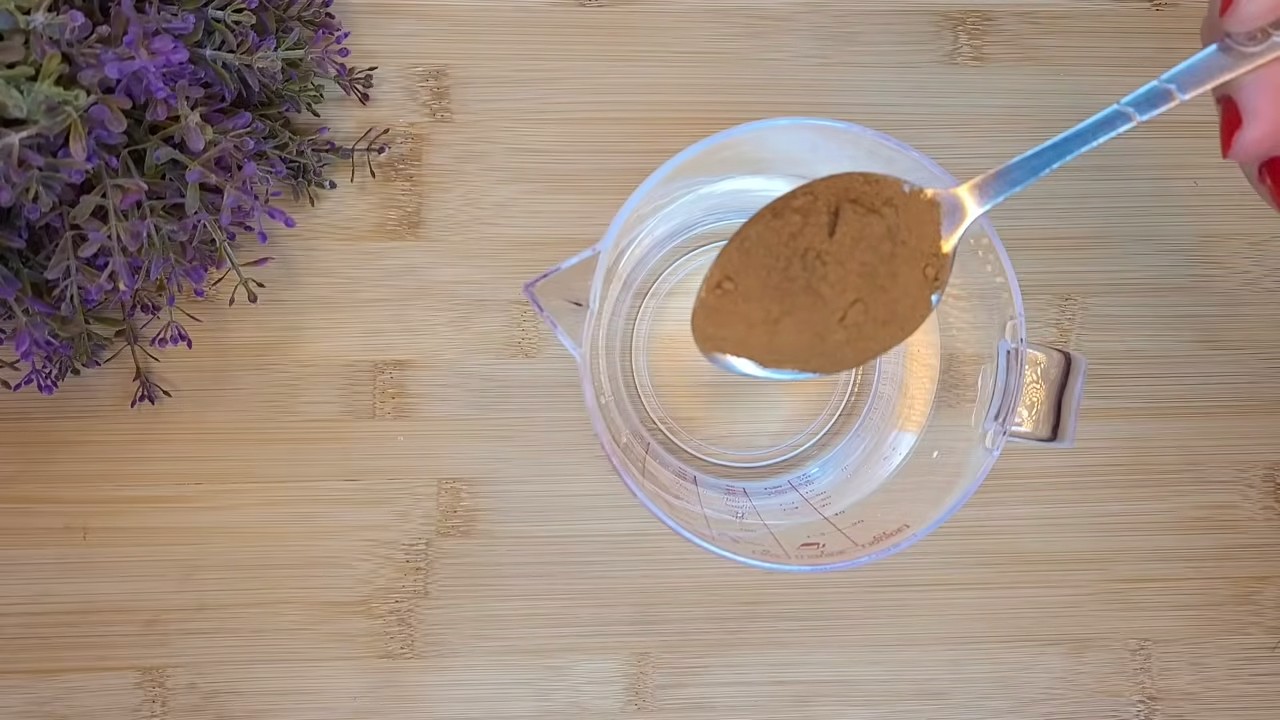
Cinnamon Life Hacks: Spice Up Your Life (Literally!)
Hey there, fellow DIY enthusiasts! I’m so excited to share some amazing cinnamon life hacks that I’ve discovered. Cinnamon isn’t just for baking; it’s a powerhouse of natural goodness that can solve a surprising number of everyday problems. Get ready to be amazed at how this humble spice can transform your home, garden, and even your well-being!
Cinnamon as a Natural Pest Repellent
One of my favorite uses for cinnamon is as a natural pest repellent. I’m always looking for ways to avoid harsh chemicals, especially around my pets and kids. Cinnamon is a fantastic alternative!
* Target Pests: Ants, spiders, fruit flies, moths, and even some rodents are deterred by cinnamon.
* Mechanism: The strong scent of cinnamon overwhelms their senses, disrupting their trails and making them want to go elsewhere.
* Forms of Use: Ground cinnamon, cinnamon sticks, and cinnamon essential oil can all be effective.
Getting Rid of Ants with Cinnamon
Ants are a common household nuisance, but thankfully, cinnamon can help!
1. Identify the Ant Trail: First, you need to find where the ants are entering your home. Watch them closely to see where they’re coming from.
2. Create a Cinnamon Barrier: Sprinkle a line of ground cinnamon directly in the path of the ants. You can also place cinnamon sticks near their entry point. I like to use a generous amount to make sure they get the message!
3. Cinnamon Essential Oil Solution (Optional): For a stronger effect, mix a few drops of cinnamon essential oil with water in a spray bottle. Spray this solution along the ant trails and entry points. Be careful not to spray directly on surfaces that could be damaged by the oil.
4. Repeat as Needed: You might need to reapply the cinnamon every few days, especially after cleaning or if it gets wet. Persistence is key!
5. Seal Entry Points: Once you’ve deterred the ants, try to seal up any cracks or openings where they were entering your home to prevent them from returning. Caulk works wonders for this!
Keeping Spiders Away with Cinnamon
Spiders are another common pest that many people dislike. Cinnamon can help keep them at bay too!
1. Identify Spider-Prone Areas: Spiders often hide in dark, damp places like corners, closets, and basements.
2. Place Cinnamon Sachets: Fill small cloth bags or sachets with ground cinnamon and place them in these spider-prone areas. You can also add a few drops of cinnamon essential oil to the sachets for extra potency.
3. Cinnamon Spray: Mix cinnamon essential oil with water in a spray bottle and spray around windows, doors, and other potential entry points.
4. Monitor and Replenish: Check the sachets and spray regularly and replenish the cinnamon as needed. The scent will fade over time, so you’ll need to refresh it.
Deterring Fruit Flies with Cinnamon
Fruit flies can be a real pain, especially in the summer. Cinnamon can help keep them away from your fruit bowl.
1. Identify the Source: Fruit flies are attracted to ripe or rotting fruit. Make sure to remove any overripe fruit from your kitchen.
2. Cinnamon Stick Solution: Place a few cinnamon sticks in your fruit bowl. The scent will deter the fruit flies.
3. Cinnamon Essential Oil Diffuser: Diffuse cinnamon essential oil in your kitchen to create an environment that fruit flies don’t like.
4. Clean Up Spills: Make sure to clean up any spills or food debris that could attract fruit flies.
Cinnamon as a Natural Air Freshener
Forget those chemical-laden air fresheners! Cinnamon can naturally freshen your home with its warm, inviting scent.
* Benefits: Natural, non-toxic, and adds a cozy aroma to your home.
* Methods: Simmering cinnamon sticks, using cinnamon essential oil in a diffuser, or making a cinnamon-infused spray.
Simmering Cinnamon Sticks for a Cozy Aroma
This is one of my favorite ways to make my home smell amazing, especially during the fall and winter.
1. Gather Your Ingredients: You’ll need a few cinnamon sticks, water, and a saucepan. You can also add other spices like cloves, star anise, or orange peels for a more complex scent.
2. Combine Ingredients: Place the cinnamon sticks and any other spices in the saucepan and cover with water.
3. Simmer on Low Heat: Bring the water to a simmer over low heat. Let it simmer for a few hours, adding more water as needed to prevent it from drying out.
4. Enjoy the Aroma: The warm, inviting scent of cinnamon will fill your home.
5. Safety First: Never leave a simmering pot unattended.
Cinnamon Essential Oil Diffuser for a Consistent Scent
Using a diffuser is a great way to enjoy the benefits of cinnamon essential oil throughout the day.
1. Choose Your Diffuser: There are many different types of diffusers available, such as ultrasonic diffusers, nebulizing diffusers, and evaporative diffusers. Choose one that suits your needs and preferences.
2. Add Water and Oil: Fill the diffuser with water according to the manufacturer’s instructions. Add a few drops of cinnamon essential oil. Start with a small amount and add more if needed.
3. Turn on the Diffuser: Turn on the diffuser and let it run. The scent of cinnamon will gradually fill the room.
4. Adjust as Needed: Adjust the amount of oil and the duration of the diffusion to suit your preferences.
Cinnamon-Infused Spray for a Quick Refresh
This is a great way to quickly freshen up a room or eliminate odors.
1. Gather Your Ingredients: You’ll need a spray bottle, water, and cinnamon essential oil. You can also add a small amount of rubbing alcohol to help the scent last longer.
2. Combine Ingredients: Fill the spray bottle with water. Add a few drops of cinnamon essential oil and a small amount of rubbing alcohol (optional).
3. Shake Well: Shake the bottle well to combine the ingredients.
4. Spray Lightly: Spray the solution lightly into the air, avoiding direct contact with furniture or fabrics.
5. Enjoy the Fresh Scent: The cinnamon-infused spray will freshen up the room and eliminate odors.
Cinnamon in the Garden: A Natural Fungicide and Growth Booster
Did you know that cinnamon can also be used in the garden? It’s a natural fungicide and can even help boost plant growth!
* Fungicide: Cinnamon can help prevent and treat fungal diseases in plants.
* Rooting Hormone: Cinnamon can stimulate root growth in cuttings.
* Ant Repellent: As mentioned earlier, cinnamon can also deter ants from your garden.
Using Cinnamon as a Natural Fungicide
Fungal diseases can be a major problem for gardeners, but cinnamon can help!
1. Identify Fungal Infections: Look for signs of fungal infections, such as powdery mildew, black spot, or damping off.
2. Cinnamon Powder Application: Sprinkle ground cinnamon directly onto the affected areas of the plant. You can also dust the soil around the base of the plant.
3. Cinnamon Tea Spray: Make a cinnamon tea by steeping cinnamon sticks in hot water. Let it cool and then strain the tea. Pour the tea into a spray bottle and spray the affected areas of the plant.
4. Repeat as Needed: Repeat the application every few days until the fungal infection is under control.
Using Cinnamon as a Rooting Hormone
Cinnamon can help stimulate root growth in cuttings, making it easier to propagate new plants.
1. Prepare Your Cuttings: Take cuttings from your desired plant. Make sure the cuttings are healthy and have several nodes.
2. Moisten the Cutting: Moisten the cut end of the cutting with water.
3. Dip in Cinnamon: Dip the moistened end of the cutting into ground cinnamon. Make sure the cinnamon coats the cut end thoroughly.
4. Plant the Cutting: Plant the cutting in a pot filled with well-draining potting mix.
5. Water and Care: Water the cutting regularly and provide it with adequate sunlight.
6. Monitor Root Growth: Monitor the cutting for root growth. It may take several weeks for roots to develop.
Cinnamon for Health and Wellness
Beyond its uses in the home and garden, cinnamon also offers several health benefits.
* Anti-inflammatory Properties: Cinnamon has anti-inflammatory properties that can help reduce inflammation in the body.
* Blood Sugar Control: Cinnamon can help regulate blood sugar levels, making it beneficial for people with diabetes.
* Antioxidant Properties: Cinnamon is rich in antioxidants, which can help protect the body against damage from
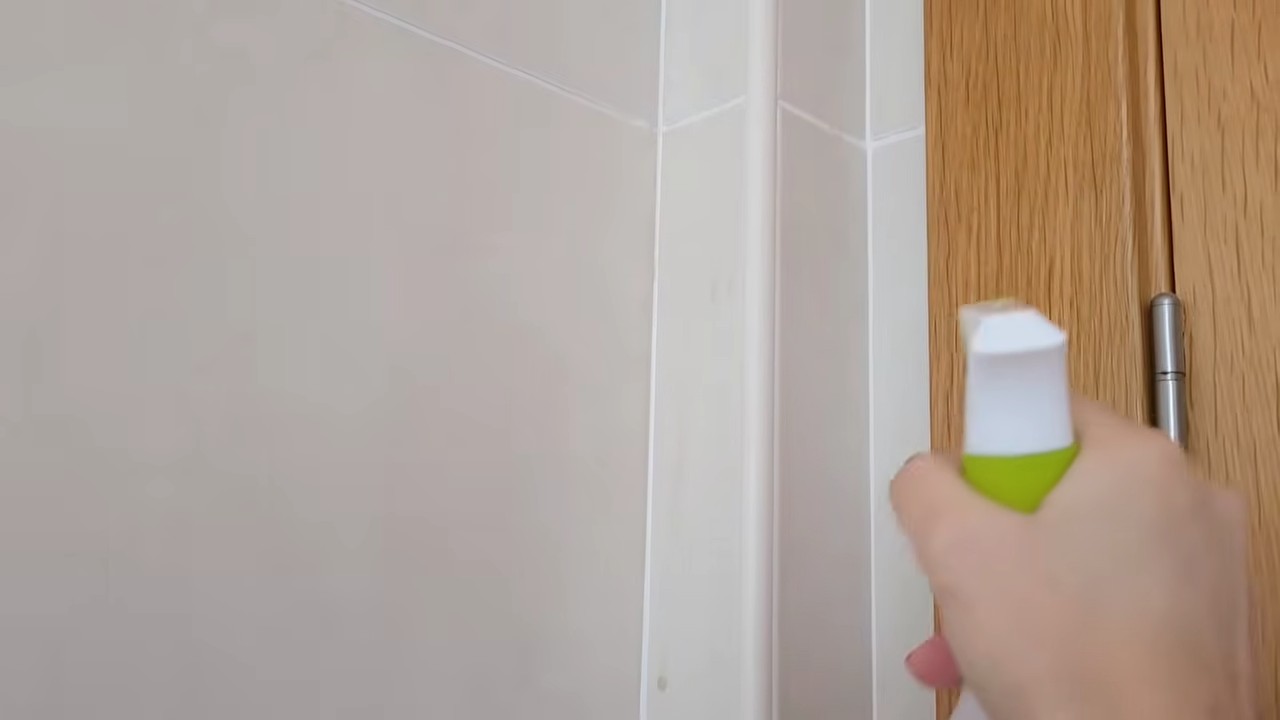
Conclusion
So, there you have it! These cinnamon life hacks are more than just clever tricks; they’re a gateway to a more fragrant, flavorful, and even healthier life. From banishing unwanted odors to adding a warm, comforting touch to your beauty routine, cinnamon proves to be a surprisingly versatile ingredient.
Why is this a must-try? Because it’s simple, affordable, and effective. You likely already have cinnamon in your pantry, making these hacks incredibly accessible. Plus, the results speak for themselves. Imagine walking into a home that smells subtly of freshly baked goods, or enjoying a soothing face mask that leaves your skin feeling refreshed and revitalized. These are the kinds of small joys that cinnamon can bring into your everyday life.
Don’t be afraid to experiment and personalize these hacks to suit your own preferences. For example, if you’re making a cinnamon air freshener, try adding a few drops of essential oils like orange or clove for an even more complex and inviting scent. When using cinnamon in your beauty routine, always do a patch test first to ensure you don’t have any sensitivities. You could also try different types of cinnamon, such as Ceylon cinnamon, which is known for its milder flavor and potential health benefits.
Consider these variations:
* **Cinnamon-Infused Honey:** Stir a teaspoon of ground cinnamon into a jar of honey for a delicious and healthful sweetener. Drizzle it over toast, yogurt, or oatmeal.
* **Cinnamon Sugar Scrub:** Combine equal parts granulated sugar, brown sugar, and coconut oil, then add a generous teaspoon of cinnamon. This scrub is perfect for exfoliating dry skin.
* **Cinnamon Tea:** Simmer a cinnamon stick in water for 10-15 minutes to create a soothing and warming tea. Add honey and lemon to taste.
* **Cinnamon Potpourri:** Combine cinnamon sticks, dried orange peels, cloves, and star anise in a decorative bowl for a fragrant and festive potpourri.
We wholeheartedly encourage you to try these cinnamon life hacks and discover the magic for yourself. The possibilities are truly endless! We are confident that you will find at least one hack that will become a staple in your routine.
But don’t just take our word for it. The real test is in the doing. So, go ahead, grab that jar of cinnamon, and get creative! We’re eager to hear about your experiences. Did you find a particular hack that worked wonders for you? Did you come up with your own unique cinnamon creation? Share your stories, tips, and photos in the comments below. Let’s build a community of cinnamon enthusiasts and inspire each other with new and exciting ways to harness the power of this amazing spice. Your feedback is invaluable and will help others discover the full potential of these simple yet effective cinnamon life hacks. We can’t wait to see what you come up with!
Frequently Asked Questions (FAQ)
Is cinnamon safe to use on my skin?
Generally, cinnamon is safe for topical use in diluted forms. However, it’s crucial to perform a patch test before applying it to larger areas of your skin, especially if you have sensitive skin. Cinnamon can cause irritation or allergic reactions in some individuals. To do a patch test, apply a small amount of the cinnamon mixture to a discreet area of your skin, such as your inner arm, and wait 24 hours to see if any redness, itching, or swelling occurs. If you experience any adverse reactions, discontinue use immediately. If you have any underlying skin conditions, consult with a dermatologist before using cinnamon topically.
Can I use any type of cinnamon for these hacks?
While most types of cinnamon will work, Ceylon cinnamon (also known as “true cinnamon”) is often preferred for its milder flavor and potential health benefits. Cassia cinnamon, the more common and less expensive variety, has a stronger flavor and contains higher levels of coumarin, a compound that can be harmful in large doses. For most of these hacks, Cassia cinnamon is perfectly fine, but if you’re consuming cinnamon regularly, Ceylon cinnamon might be a better choice.
How long will the cinnamon air freshener last?
The longevity of your cinnamon air freshener will depend on the method you use. Simmering cinnamon sticks on the stovetop will provide a short-term burst of fragrance, lasting for a few hours. A cinnamon-infused simmer pot can last for a day or two, as long as you replenish the water as needed. For a longer-lasting option, consider using a cinnamon diffuser blend with essential oils, which can last for several days or even weeks. The effectiveness of the air freshener will also depend on the size of the room and the ventilation.
Can cinnamon help with weight loss?
Some studies suggest that cinnamon may have a positive impact on blood sugar levels and metabolism, which could potentially aid in weight loss. However, it’s important to note that cinnamon is not a magic bullet for weight loss. It should be used as part of a healthy diet and exercise plan. Cinnamon may help to regulate blood sugar levels, which can reduce cravings and prevent energy crashes. It may also have a thermogenic effect, meaning it can slightly increase your body’s calorie burning. However, more research is needed to fully understand the effects of cinnamon on weight loss.
Are there any side effects of consuming too much cinnamon?
Yes, consuming excessive amounts of cinnamon can lead to several side effects. As mentioned earlier, Cassia cinnamon contains higher levels of coumarin, which can be toxic to the liver and kidneys in large doses. It’s generally recommended to limit your intake of Cassia cinnamon to no more than 1 teaspoon per day. Other potential side effects of consuming too much cinnamon include mouth sores, allergic reactions, and interactions with certain medications. If you have any concerns about your cinnamon intake, consult with your doctor or a registered dietitian.
How can I store cinnamon to keep it fresh?
To maintain the freshness and potency of your cinnamon, store it in an airtight container in a cool, dark, and dry place. Exposure to air, light, and moisture can cause cinnamon to lose its flavor and aroma over time. Ground cinnamon typically has a shorter shelf life than cinnamon sticks. Ground cinnamon should be used within 6-12 months, while cinnamon sticks can last for up to 2-3 years. To test if your cinnamon is still fresh, give it a sniff. If it has a weak or nonexistent aroma, it’s likely past its prime.
Can I use cinnamon to repel insects?
Yes, cinnamon can be an effective natural insect repellent. The strong scent of cinnamon is known to deter ants, moths, and other pests. You can sprinkle ground cinnamon around areas where you’ve seen insects, such as doorways, windowsills, and cracks in the walls. You can also place cinnamon sticks in closets and drawers to repel moths. For a more potent insect repellent, you can create a cinnamon spray by mixing cinnamon essential oil with water in a spray bottle.
What are some other creative uses for cinnamon?
Beyond the hacks mentioned in the article, cinnamon can be used in a variety of other creative ways. You can add a pinch of cinnamon to your coffee or tea for a warm and spicy flavor. You can also use cinnamon to create a natural dye for fabrics or paper. Cinnamon can even be used as a natural remedy for certain ailments, such as indigestion and sore throats. The possibilities are truly endless!

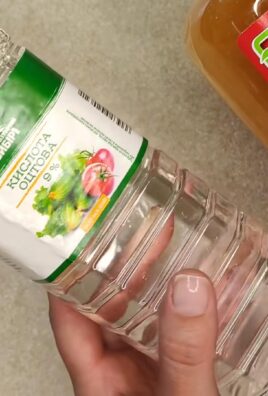
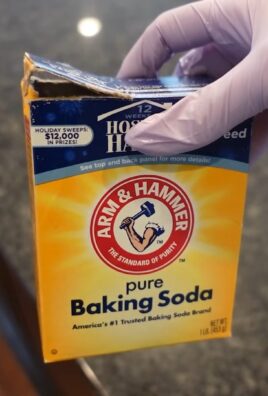
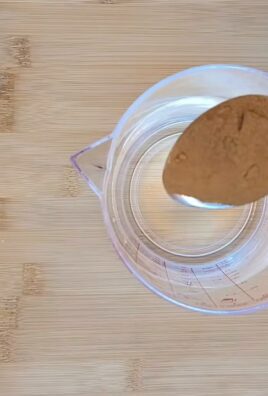
Leave a Comment